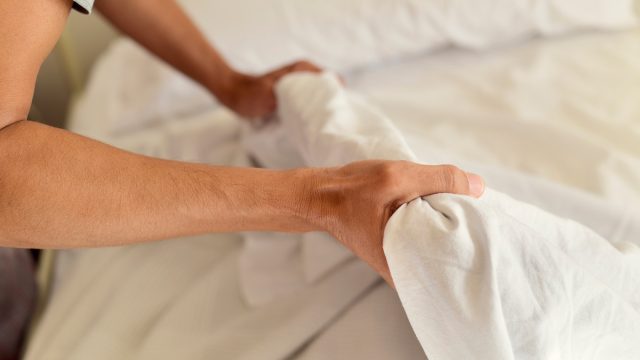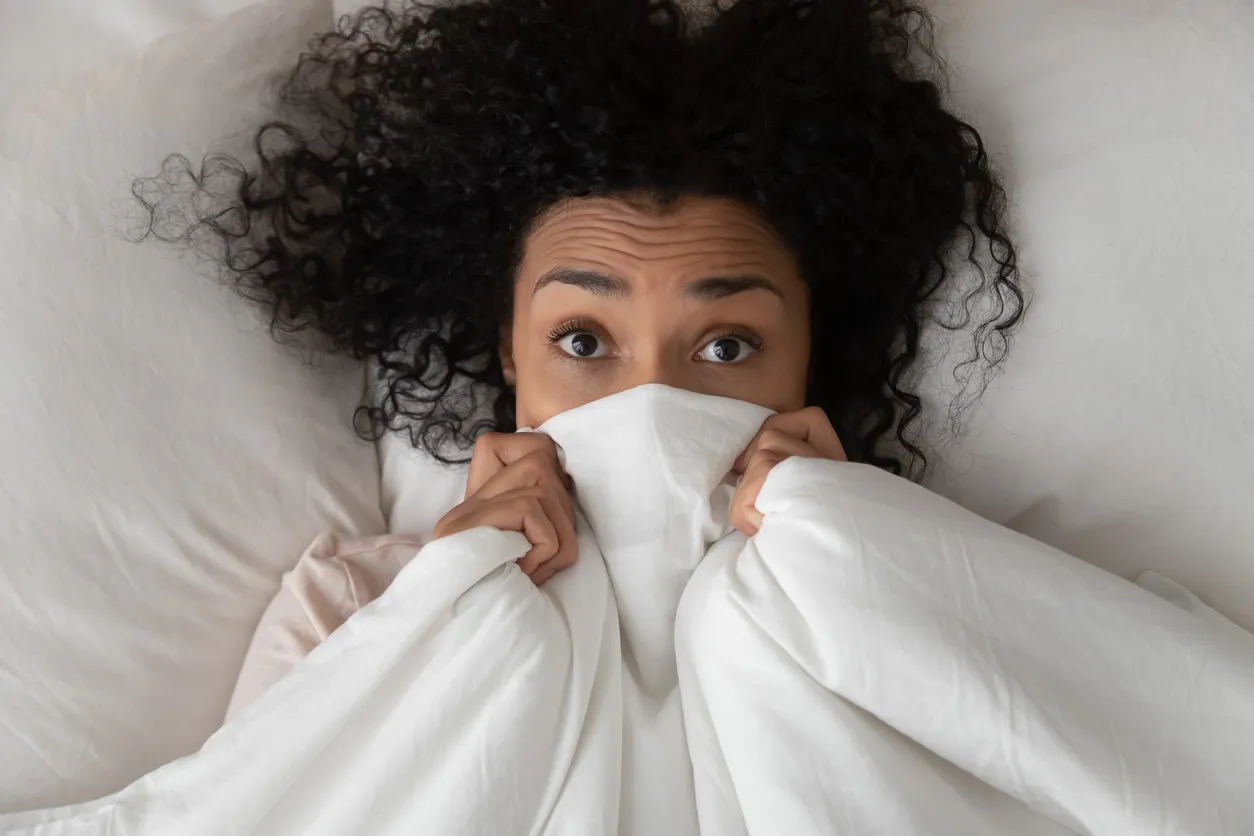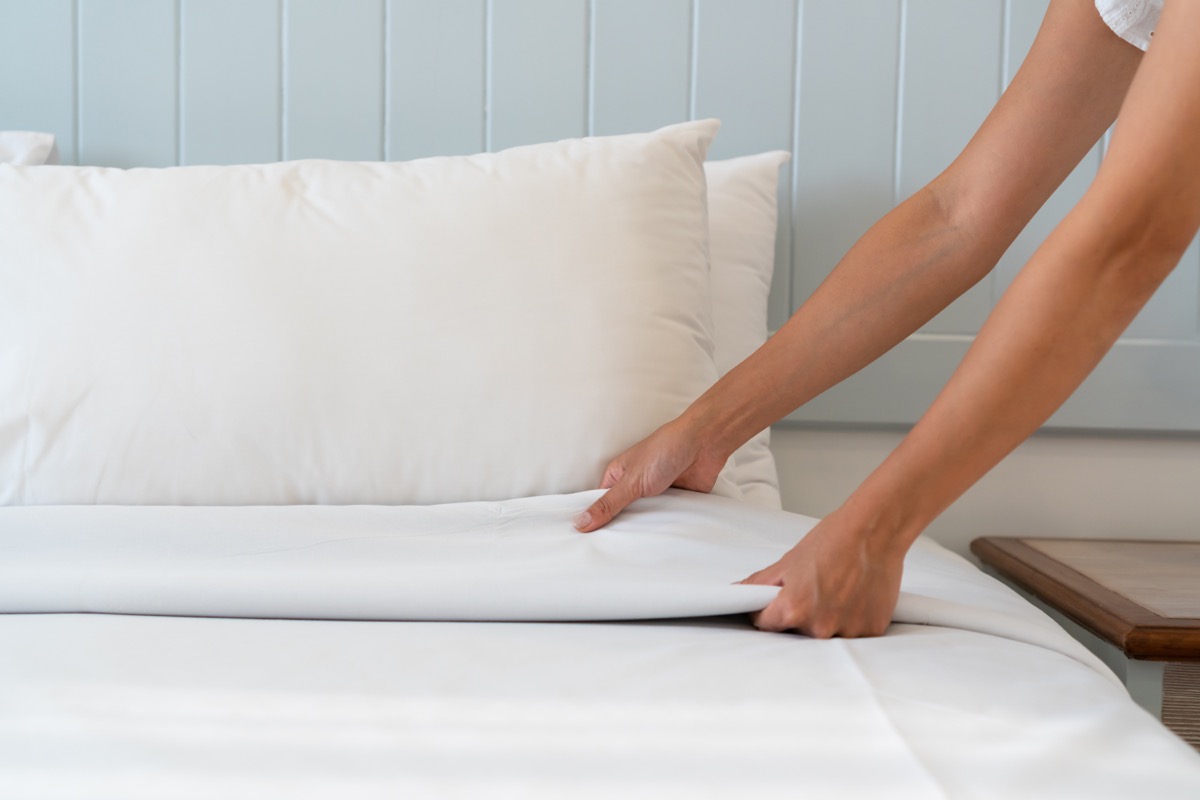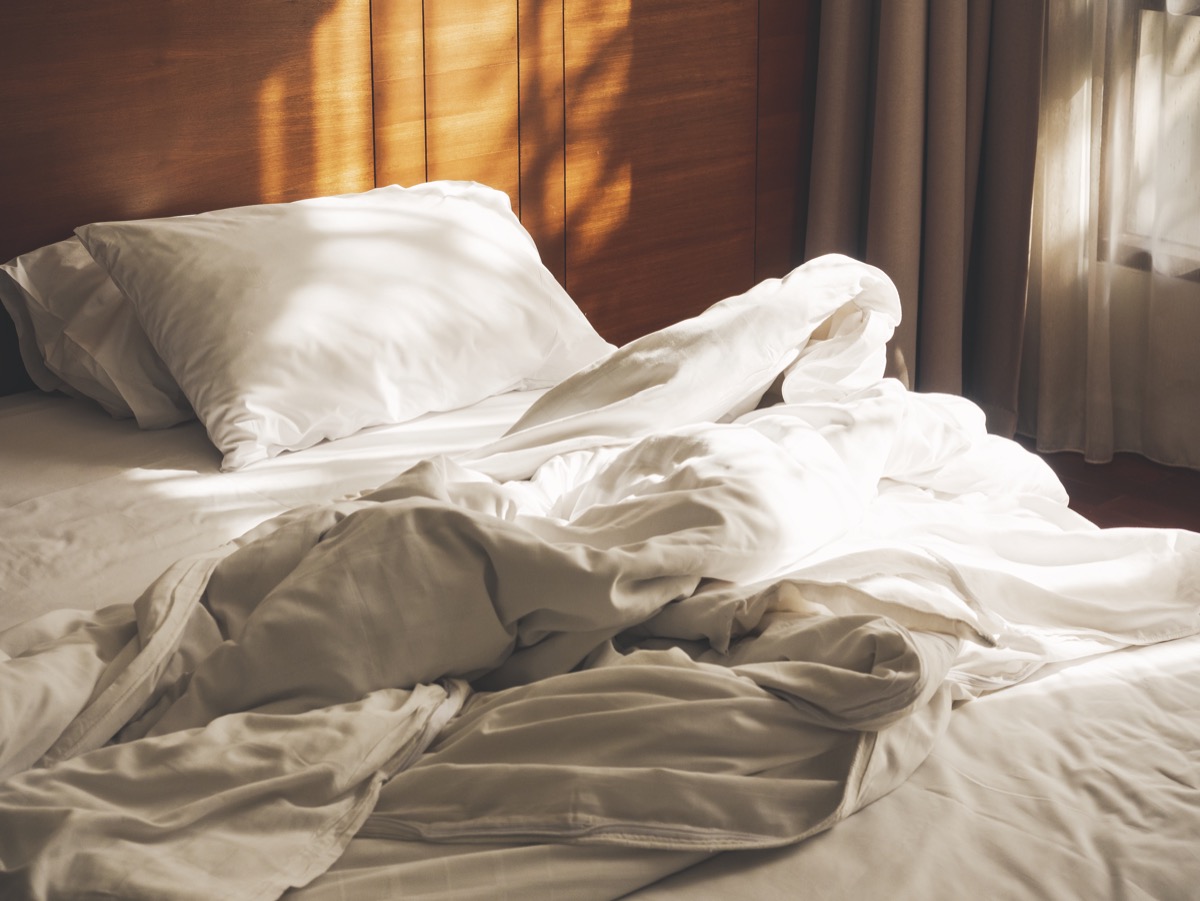The Gross Reason You Should Never Make Your Bed Right After Waking

If conventional wisdom and your mom are to be believed, it’s absolutely essential to make your bed as soon as you wake up. Yet some experts now say that there’s one big reason to skip this particular hygiene habit, at least within the first 30 minutes of your day. Martin Seeley, a sleep expert and CEO of the U.K.-based company MattressNextDay, says there are several ways that making your bed right after waking could be harming your health—and one is particularly gross. Read on to learn the surprising reason you should put off making your bed in the morning for better cleanliness and fewer health risks.
RELATED: What Happens If You Don’t Vacuum for a Month, According to Experts.
All beds have dust mites.

Relatives of ticks and spiders, dust mites are microscopic arachnids that eat dead human skin cells. According to the American Association for Retired Persons (AARP), the average person has 1.5 million dust mites in their bed, and they produce two times their body weight in fecal matter. Though you can’t see them, your mattress is likely teeming with these insect-like pests—even under the cleanest of conditions.
RELATED: 5 Things in Your Home That Are Grossing Your Guests Out.
But some conditions help dust mites thrive more than others.

Dust mites thrive in warm, humid settings—meaning your bed is an ideal environment for them to live and breed. Seeley says that most people sweat an average of 500ml per night, which increases both the heat and moisture level in your bedding and mattress.
“Many studies show that unventilated bedding, caused by making your bed immediately, can create an environment that leads to higher concentrations of dust mites and their allergic proteins,” Seeley says. “That’s why it’s important to leave your bed for at least 30 minutes, allowing for better ventilation which helps disperse moisture and reduces the overall humidity in your bed.”
RELATED: What Happens If You Don’t Wash Your Bra for a Month, According to Experts.
Natural sunlight may also help you fight back.

Another benefit to leaving your bed unmade for 30 minutes is that it exposes your bedding to natural sunlight, Seeley says.
“Natural sunlight can play a role in preventing the accumulation of dust mites. Allowing your bedding to remain unmade for a while gives it exposure to natural sunlight,” he notes. “Sunlight has disinfectant properties and can help kill some bacteria and mites, further reducing potential health risks.”
Richard Prassad, sleep and mattress expert and the CEO of Sleep 365, says that on sunny days, he will regularly strip his own bed to let the mattress spend a few hours in the sunlight. “From my standpoint, making use of natural sunlight as a disinfectant is an underrated practice,” he says.
RELATED: 3 Ways Your Bedding Is Hurting Your Health, According to Experts.
People with asthma and allergies are at the highest risk.

Ten percent of the population suffers from dust mite allergies and eight percent have asthma. People with these pre-existing conditions may be prone to more severe symptoms of dust mite exposure.
Prassad notes that people with asthma or allergies may benefit most from not making their bed immediately. “The idea of letting the bed breathe presents a straightforward yet effective method to promote a healthier sleeping environment,” he tells Best Life. “This practice symbolizes a minor shift in our morning routine that could foster a significant leap toward better sleep hygiene and overall wellness.”
There are several symptoms to look out for if you believe dust mites may be affecting your health. “These little creatures produce proteins that can trigger reactions causing symptoms, like sneezing, itching, congestion, and even asthma attacks,” explains Steve Nuamah, a home hygiene expert and CEO of Elite Maids.
RELATED: 5 Things You Should Always Do Before Your House Cleaner Comes.
Your other hygiene habits are key.

While Prassad agrees that holding off on making the bed in the morning may help reduce the volume of dust mites present, he says that maintaining a clean and safe bedding environment through regular and thorough washing is even more important: “It’s about fostering a habit of cleanliness.”
Nuamah recommends washing your bedding, including sheets, pillowcases, and blankets, at least once every one to two weeks in hot water (above 130°F or 54°C) to kill dust mites. Furthermore, he suggests using allergen-proof covers on pillows, mattresses, and box springs to create a barrier against dust mites, regularly vacuuming and dusting your bedroom to minimize dust accumulation, and using hypoallergenic bedding materials to minimize allergen exposure.
For more wellness tips sent directly to your inbox, sign up for our daily newsletter.